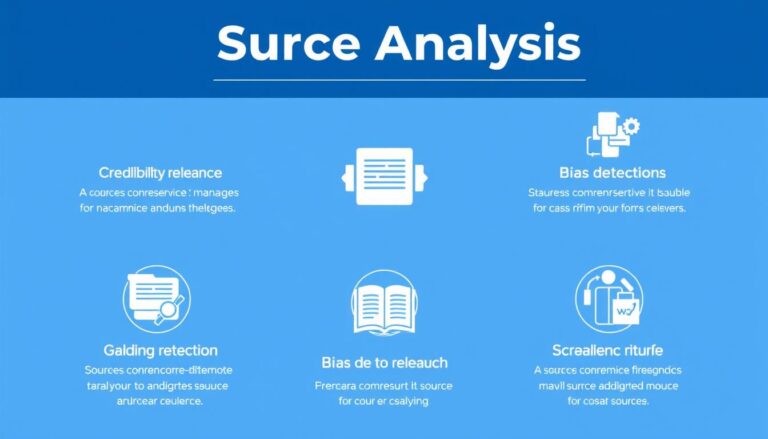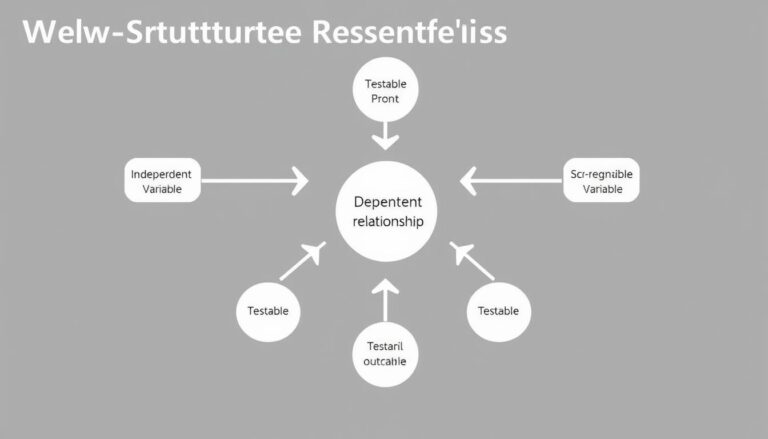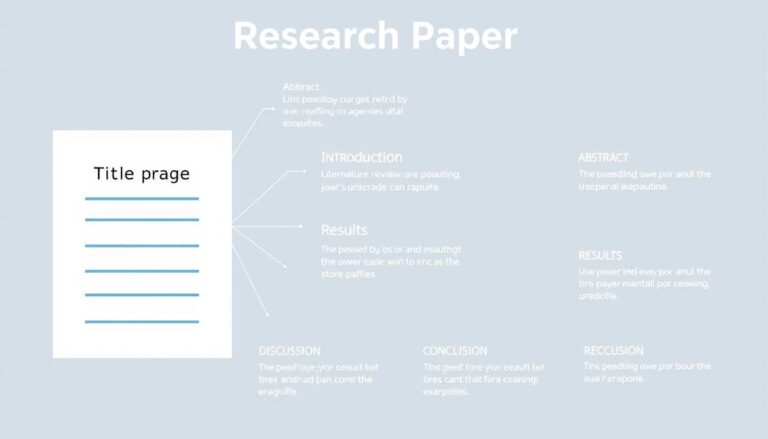Deepening your understanding of a subject requires more than just passive reading or listening. Engaging with study materials through interactive activities can significantly enhance your learning experience.
By incorporating extra exercises into your study routine, you can reinforce your knowledge and develop a more nuanced understanding of the subject matter. These practice activities are designed to challenge your thinking and help you apply what you’ve learned.
Key Takeaways
- Extra exercises can deepen your understanding of a subject.
- Engaging with study materials interactively enhances learning.
- Practice activities reinforce knowledge and promote nuanced understanding.
- Study tasks help apply learned concepts to real-world scenarios.
- Regular practice leads to improved retention and recall.
The Power of Supplementary Learning
Supplementary learning is a powerful tool that can significantly enhance a student’s understanding of a subject. By engaging in additional activities, students can reinforce their learning and improve retention.
Why Additional Practice Matters
Additional practice is crucial because it helps solidify new concepts and skills. Repetition is key to learning, and extra exercises provide students with the opportunity to revisit and reinforce their understanding. This is particularly important for subjects that require language practice, such as English or foreign languages.
The Science Behind Reinforcement Learning
Reinforcement learning is grounded in the science of neural connections. When students engage in extra exercises, they strengthen the connections between neurons, making it easier to recall information. Research has shown that this type of practice can lead to significant improvements in retention and understanding.
| Benefits of Supplementary Learning | Description |
|---|---|
| Improved Retention | Extra exercises help solidify new concepts and skills. |
| Enhanced Understanding | Additional practice deepens a student’s grasp of a subject. |
| Better Recall | Reinforcement learning strengthens neural connections, making it easier to recall information. |
Benefits of Incorporating Extra Exercises into Your Study Routine
Incorporating extra exercises into your study routine can have a significant impact on your learning outcomes. By doing so, you can reinforce your understanding of the material, fill knowledge gaps, and develop a more comprehensive grasp of the subject.
Building Stronger Neural Connections
Extra exercises help build stronger neural connections in your brain, enhancing your ability to recall information and apply it in different contexts. This process is crucial for mastering complex concepts and developing problem-solving skills.
Moving Knowledge from Short-term to Long-term Memory
Regular practice through extra exercises facilitates the transfer of information from short-term to long-term memory. This transition is vital for retaining knowledge over an extended period, allowing you to build upon previously learned material with confidence.
Boosting Confidence Through Mastery
As you complete extra exercises and see improvement in your understanding and performance, your confidence grows. This boost in confidence is a result of mastering new skills and concepts, which in turn motivates you to continue learning and tackling more challenging tasks.
| Benefits | Description | Outcome |
|---|---|---|
| Stronger Neural Connections | Enhanced recall and application of information | Better mastery of complex concepts |
| Knowledge Retention | Transfer of information to long-term memory | Improved retention and recall over time |
| Confidence Boost | Mastery of new skills and concepts | Increased motivation and performance |
Identifying Your Learning Gaps
A key component of successful learning is identifying and addressing knowledge gaps. Recognizing where you need improvement is the foundation upon which effective language practice and additional activities are built.
Self-Assessment Techniques
To identify your learning gaps, you need to assess your current level of understanding. This can be done through various self-assessment techniques such as quizzes, tests, or reflective journaling. For instance, you can use online quizzes to gauge your grammar skills or maintain a journal to track your progress in vocabulary acquisition.

Creating a Personalised Practice Plan
Once you’ve identified your learning gaps, the next step is to create a personalized practice plan. This involves setting specific, achievable goals and selecting additional activities that cater to your needs. For example, if you struggle with certain grammar rules, you can incorporate targeted exercises into your daily routine.
Setting Realistic Improvement Goals
Setting realistic goals is crucial for maintaining motivation and tracking progress. Break down larger goals into smaller, manageable tasks, and celebrate your achievements along the way. As
“The way to get started is to quit talking and begin doing.”
– this quote by Walt Disney encapsulates the importance of taking action towards your goals.
By following these steps, you can effectively identify your learning gaps and create a tailored plan to address them, thereby enhancing your overall learning experience.
Language Learning Extra Exercises for Australian Students
Language learning is a journey, and Australian students can benefit greatly from supplementary exercises tailored to their needs. By incorporating extra exercises into their study routine, students can enhance their vocabulary, improve grammar, and develop more confident communication skills.
Vocabulary Enhancement Activities
To expand their vocabulary, Australian students can engage in activities such as:
- Reading Australian literature and newspapers
- Playing word games like Scrabble or Boggle
- Using vocabulary building apps
These activities help students learn new words in context, improving their understanding and usage.
Grammar Practice Techniques
Effective grammar practice involves a mix of:
- Completing grammar worksheets
- Participating in online grammar quizzes
- Writing short stories or essays
By practicing grammar in different contexts, students can solidify their understanding of language rules.
Conversation and Pronunciation Drills
Improving conversation skills and pronunciation is crucial for effective communication. Australian students can benefit from:
- Engaging in conversation exchange programs
- Listening to Australian English podcasts or radio shows
- Recording themselves speaking and analyzing their pronunciation
Australian English Pronunciation Focus
Australian English has distinct pronunciation features, such as:
- The use of vowel shifts in certain words
- The pronunciation of “r” sounds at the end of words
Focusing on these features can help students sound more natural and confident when speaking.
Mathematics and Problem-Solving Practice
Enhancing mathematical abilities requires a multifaceted approach that includes progressive difficulty challenges and real-world applications. To improve problem-solving skills, it’s essential to engage in a variety of study tasks that cater to different learning styles.
Progressive Difficulty Challenges
One effective way to enhance mathematical skills is through progressive difficulty challenges. This involves starting with basic problems and gradually moving to more complex ones, ensuring that the learner is consistently challenged but not overwhelmed. Utilizing online resources or maths workbooks that offer a range of problems can be particularly helpful.
Real-World Application Problems
Applying mathematical concepts to real-world scenarios makes learning more relevant and interesting. Real-world application problems help students see the practical value of mathematics, enhancing their engagement and motivation. Examples include calculating expenses, understanding statistics in news reports, or measuring ingredients for cooking.
Mental Maths Exercises for Daily Use
Mental maths exercises are another valuable tool for improving mathematical skills. Practicing mental calculations for daily tasks, such as calculating change or tips, can enhance numerical fluency and confidence. Regular mental maths practice can be incorporated into daily routines, such as during commutes or while waiting in line.
| Maths Skill | Practice Activity | Real-World Application |
|---|---|---|
| Basic Addition/Subtraction | Mental maths exercises | Calculating change |
| Algebraic Expressions | Solving equations | Understanding formulas |
| Geometry | Identifying shapes | Architecture and design |
By incorporating these additional activities and study tasks into their learning routine, students can significantly improve their mathematical skills and problem-solving abilities.
Science and Critical Thinking Extra Exercises
Developing critical thinking skills is crucial for students, especially in the realm of science where experimentation and analysis are key. Extra exercises in science can significantly enhance a student’s ability to think critically and approach problems methodically.

Experimental Design Practice
One of the fundamental skills in science is the ability to design experiments effectively. Experimental design practice involves creating hypotheses, identifying variables, and establishing methods to test scientific questions. By practicing experimental design, students learn to think critically about the structure of their experiments and how to minimize bias.
Hypothesis Testing Exercises
Hypothesis testing is a crucial aspect of scientific inquiry. Hypothesis testing exercises help students understand how to formulate null and alternative hypotheses, select appropriate statistical tests, and interpret results. This skill is vital for validating scientific theories and understanding the natural world.
Data Analysis and Interpretation
After collecting data, the ability to analyze and interpret it is paramount. Students engage in data analysis and interpretation exercises to learn how to use statistical tools, identify trends, and draw meaningful conclusions from their data. This skill is essential for making informed decisions based on empirical evidence.
Australian Environmental Science Applications
In the context of Australian environmental science, these critical thinking exercises can be applied to real-world issues such as conservation efforts, climate change impacts, and sustainable land management. For instance, students can design experiments to study the effects of climate change on local ecosystems or analyze data on the effectiveness of conservation programs. For more information on critical thinking, refer to this resource.
| Skill | Description | Example Application |
|---|---|---|
| Experimental Design | Creating experiments to test hypotheses | Studying the impact of pollution on local wildlife |
| Hypothesis Testing | Formulating and testing hypotheses | Testing the effect of different fertilizers on crop yield |
| Data Analysis | Analyzing data to draw conclusions | Analyzing climate data to predict future trends |
Physical Education and Movement Activities
To foster a lifelong appreciation for physical activity, it’s essential to incorporate diverse movement exercises into daily routines. Physical education plays a vital role in the overall development of individuals, enhancing not only physical health but also mental well-being. In Australia, where sports and outdoor activities are deeply ingrained in the culture, there’s a wealth of opportunities to engage in various physical pursuits.
Skill-Specific Drills for Popular Australian Sports
For Australian students, practicing skill-specific drills for popular sports like cricket, rugby, and soccer can be both fun and beneficial. These drills can be adapted to different age groups and skill levels, ensuring that everyone can participate and improve. For instance, soccer drills might focus on dribbling, passing, and shooting techniques, while cricket practice could emphasize batting, bowling, and fielding skills.
As John Doe, a renowned sports coach, once said, “The key to mastering any sport is consistent practice and a focus on developing specific skills.” This approach not only enhances performance but also builds teamwork and discipline.
Coordination and Balance Activities
Coordination and balance are fundamental aspects of physical fitness that can be improved through targeted exercises. Activities such as gymnastics, dance, and even simple balance drills can significantly enhance overall physical ability. For younger students, games that involve hopping, skipping, and jumping can be both enjoyable and effective in developing these skills.
Endurance Building Exercises for All Ages
Endurance is crucial for maintaining health and performing daily tasks efficiently. Exercises such as running, cycling, and swimming are excellent for building cardiovascular endurance. For older adults, activities like brisk walking, yoga, and tai chi can be modified to suit different fitness levels, ensuring that everyone can benefit from endurance training.
As emphasized by
“Exercise is a celebration of what your body can do, not a punishment for what you ate.” – Unknown
, the focus should be on enjoying physical activity and celebrating progress, rather than striving for perfection.
Creative Arts and Expression Practice
Exploring creative arts can be a rewarding experience that fosters self-expression and enhances one’s ability to communicate effectively. Engaging in various artistic activities can help individuals develop their unique voice and style.
Technique Development Activities
To improve in creative arts, it’s essential to practice regularly. Technique development activities such as drawing, painting, or playing a musical instrument can help refine skills. For instance, setting aside time each day to practice drawing can significantly improve one’s technique over time.
Creative Challenges and Prompts
Participating in creative challenges and prompts can stimulate imagination and inspire new ideas. These activities encourage individuals to step out of their comfort zones and explore different forms of artistic expression.
Reflection and Critique Exercises
Engaging in reflection and critique exercises is crucial for growth in creative arts. By analyzing one’s work and receiving feedback from others, individuals can identify areas for improvement and develop their skills further.
Through consistent practice and a willingness to learn, individuals can enhance their creative abilities and enjoy the many benefits that creative arts have to offer.
Digital Tools and Resources for Extra Practice
Digital tools have revolutionized the way students learn, offering a variety of additional activities and study tasks. These resources can be particularly beneficial for Australian students looking to supplement their education.
Australian Educational Apps and Platforms
There are numerous educational apps and platforms designed specifically for the Australian curriculum. These tools provide interactive learning experiences, making it easier for students to engage with complex concepts. Some popular options include apps that focus on mathematics, language learning, and science.
Online Communities for Practice Partners
Online communities have emerged as a valuable resource for students seeking practice partners. These platforms connect learners from different regions, allowing them to collaborate and learn from one another. Students can participate in discussions, share resources, and engage in group activities that foster a sense of community.
Virtual Learning Environments
Virtual learning environments (VLEs) offer a comprehensive platform for students to access educational resources, submit assignments, and interact with teachers. VLEs are particularly useful for remote Australian learners who may not have access to traditional educational facilities.
Accessibility Options for Remote Australian Learners
Many digital tools now offer accessibility options to cater to the needs of remote learners. These options may include adjustable font sizes, screen reader compatibility, and offline access to resources. Such features ensure that all students can benefit from digital learning tools, regardless of their location or abilities.
Making Extra Exercises a Daily Habit
Making extra exercises a daily habit requires commitment, but the benefits are well worth the effort. By incorporating extra exercises into your daily routine, you can reinforce new skills and build confidence in your abilities.
Building Consistent Practice Routines
To build a consistent practice routine, start by setting aside a specific time each day dedicated to language practice or other extra exercises. Consistency is key, so it’s better to practice for a shorter duration each day than to try to fit all your practice into one or two long sessions on the weekend.
For example, you could dedicate 15 minutes each morning to vocabulary building activities or grammar practice. As you get into the habit, you can gradually increase the duration or intensity of your practice sessions.
Overcoming Practice Plateaus
It’s common to hit a plateau when practicing new skills, but there are ways to overcome this. One approach is to mix up your extra exercises to keep things interesting and challenging. For instance, if you’re practicing a new language, try switching between different types of exercises, such as listening, speaking, reading, and writing.
Celebrating Small Wins and Progress
Celebrating your small wins and progress is crucial for staying motivated. Keep track of your achievements, no matter how minor they may seem, and reward yourself for your hard work. This could be something as simple as treating yourself to a favorite meal or activity after reaching a milestone in your practice.
By building consistent practice routines, overcoming plateaus, and celebrating your progress, you can make extra exercises a sustainable and enjoyable part of your daily routine.
Measuring Progress and Adjusting Your Approach
The key to successful learning lies in consistently measuring your progress and adapting your approach as needed. As you engage in additional activities and study tasks, it’s essential to have a clear understanding of how you’re advancing.
Tracking Systems for Practice Activities
Implementing a tracking system for your practice activities can significantly enhance your learning experience. This can be as simple as maintaining a logbook or using a digital app to record your progress.
Some effective methods include:
- Setting specific milestones and checking them off as you achieve them
- Using a spreadsheet to track your scores or completion rates over time
- Creating a habit tracker to monitor your consistency in practice
Recognising When to Increase Difficulty
It’s crucial to identify when you’re ready to move on to more challenging tasks. Increasing difficulty at the right time helps prevent plateaus and keeps the learning process engaging.
Signs that you’re ready for more challenging material include:
- Consistently achieving high scores or completion rates
- Finding the current tasks too easy or not engaging
- Feeling confident in your ability to tackle more complex problems
When and How to Pivot Your Practice Focus
Sometimes, despite your best efforts, you may find that your current approach isn’t yielding the desired results. Recognizing when to pivot is a critical skill that can save time and frustration.
Consider pivoting your practice focus if:
- You’ve plateaued despite consistent effort
- You find that your current method isn’t aligning with your learning style
- Your goals have changed, requiring a different set of skills or knowledge
To illustrate the effectiveness of tracking progress, let’s consider the following example:
| Week | Activity | Score/Completion Rate |
|---|---|---|
| 1 | Vocabulary Building | 80% |
| 2 | Grammar Practice | 85% |
| 3 | Conversation Drills | 90% |
Conclusion: Embracing the Journey of Continuous Improvement
Continuous improvement is a vital aspect of achieving success in any field, whether it’s language practice or mastering extra exercises. By embracing this journey, individuals can foster a growth mindset, persist in the face of challenges, and ultimately achieve their goals.
Through consistent effort and dedication to language practice and extra exercises, learners can reinforce their understanding, build confidence, and develop a deeper appreciation for the subject matter.
As you continue on your learning journey, remember to celebrate small victories, seek support when needed, and stay committed to your goals. By doing so, you’ll be well on your way to making lasting progress and achieving success.





